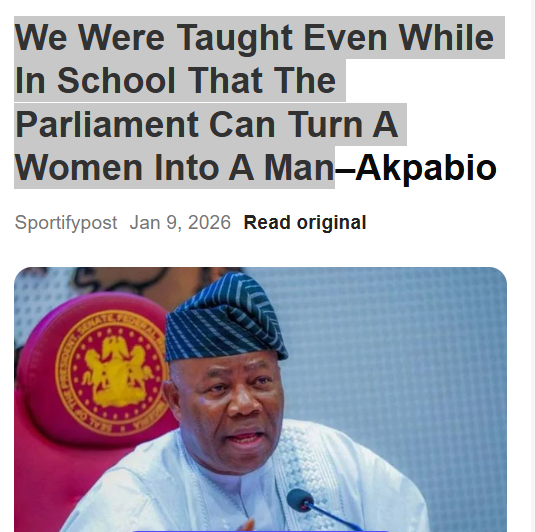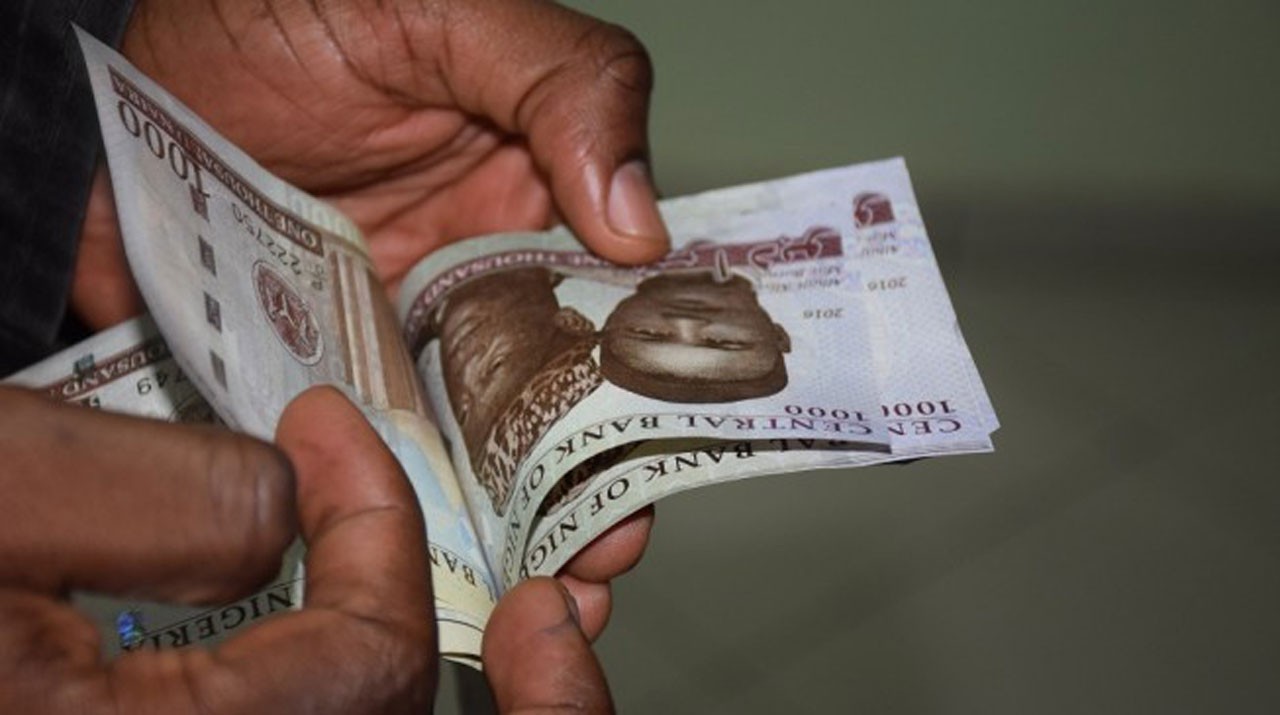CLAIM
A former Nigerian President, Olusegun Obasanjo, on Friday, August 9, claimed that members of Nigeria’s National Assembly fix their own salaries and allowances, describing the alleged practice as “immoral”.
According to reports by major media platforms, Obasanjo spoke at his residence in Abeokuta, Ogun State, while hosting six serving members of the House of Representatives.
“Look at your case, with all due respect. You are not supposed to fix your salaries or your allowances; it is supposed to be done by the Revenue Mobilisation (referring to RMFAC), but you decide what you pay yourselves, the allowances that you give yourselves — newspaper allowances, pant allowances — you give yourself all sorts of things. With due respect, you know it is not right.
“It is not right for me to be the one to declare and determine what I pay myself. It is immoral, and then you are doing it.
“The senate is doing it, and in some cases, the executive gives you what you are not entitled to. You all got N200 million,” Obasanjo was quoted to have said.
His comments attracted reactions from both the Senate and the House of Representatives arms of the National Assembly.
In denying Obasanjo’s allegation, the Spokesman for the Senate, Yemi Adaramodu, described the former president’s claim as “uncharitable,” while his House of Reps counterpart, Philip Agbese, labelled it “wrong and unfounded”.
Both the Red and the Green Chambers said their salaries and allowances are fixed by the Revenue Mobilisation Allocation and Fiscal Commission (RMAFC).
Verification
A search through the Nigerian 1999 constitution (as amended ) online revealed that RMAFC, an agency of the Federal Government, is constitutionally empowered to determine the remuneration of all political office holders including members of the National Assembly.
This is in line with the provision of Paragraph 32(d) of Part 1 of the Third Schedule of the 1999 Constitution of the Federal Government (as amended).
It reads: “… determine the remuneration appropriate for political office holders, including the President, Vice President, Governors, Deputy Governors, Ministers, Commissioners, Special Advisers, Legislators and the holders of the offices mentioned in Sections 84 and 124 of this Constitution”.
On Tuesday, RMAFC released a statement detailing the monthly salary and allowance of a Nigerian Senator.
The commission said each of the 109 senators occupying legislative seats in the red chamber earns ₦1,063,860 salary and allowances per month.
The commission gave the breakdown of the salary and allowances of each senator as: Basic Salary – ₦168,866:70; Motor Vehicle Fuelling and Maintenance Allowance – ₦126,650:00; Personal Assistant – ₦42,216:66; Domestic Staff -₦126,650:00; Entertainment – ₦50,660:00; Utilities – ₦50,660:00; Newspapers/Periodicals – ₦25,330:00; Wardrobe – ₦42,216,66:00; House Maintenance – ₦8,443.33:00 and Constituency Allowance – ₦422,166:66; respectively.
RMAFC chairman M. B. Shehu, in a statement on Tuesday, made the clarification “in view of the recent statement made by Mr. Shehu Sani, a former Senator of the Federal Republic who was reported to have disclosed to the public that each Senator collects monthly running cost of ₦13.5 M in addition to the monthly ₦750, 000.00 prescribed by the Commission.”
CONCLUSION
It is established by the constitutional provisions, correspondences from the National Assembly and the RMAFC that contrary to the Obasanjo’s claim, salaries and allowances of Nigerian Senators and House of Representatives members are fixed by the RMAFC, and not, by themselves.
However, there is a disparity between the figures released by the RMAFC on the monthly take of a Senator and the one announced by a serving Senator from Kano State, Kawu Sumaila.
Sumaila, representing Kano South senatorial district on the platform of New Nigeria Peoples Party (NNPP), said he earns a cumulative ₦21 million monthly in salary and allowances.
The disparity highlighted lends some credence to former President Olusegun Obasanjo’s allegation that there may be allocations occurring in an extra-judicial manner.
VERDICT: Therefore, the claim is not misleading and is partially true.





